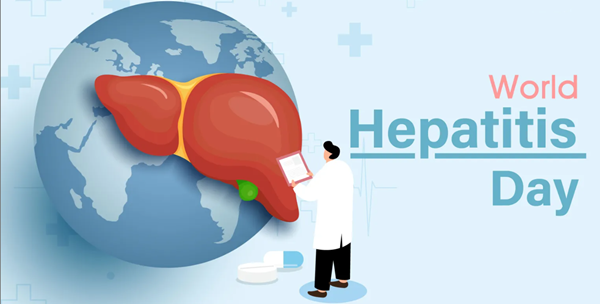World Hepatitis Day: Fighting the ‘silent killer’ together
July 28th of each year is World Hepatitis Day, established by the World Health Organization (WHO) to raise global awareness of viral hepatitis, promote prevention, detection and treatment, and ultimately achieve the goal of eliminating hepatitis as a public health threat. Hepatitis is known as the “silent killer” because its early symptoms are not obvious, but long-term infection may lead to cirrhosis, liver failure and even liver cancer, bringing a heavy burden to individuals, families and society.
Global Status of Hepatitis
According to the World Health Organization, approximately 354 million people worldwide suffer from chronic viral hepatitis, of which hepatitis B (HBV) and hepatitis C (HCV) are the most common pathogenic types. Every year, hepatitis causes more than 1 million deaths, a figure that even exceeds the number of deaths from AIDS and malaria. However, due to insufficient public awareness, limited medical resources, and social discrimination, many patients fail to receive timely diagnosis and treatment, resulting in the continued spread and deterioration of the disease.
Types of Viral Hepatitis and Transmission
There are five main types of viral hepatitis:
- Hepatitis A (HAV): spread through contaminated food or water, usually self-healing but can be fatal in severe cases.
- Hepatitis B (HBV): Transmitted through blood, mother-to-child or sexual contact, it can lead to chronic infection and is one of the main causes of liver cancer.
- Hepatitis C (HCV): mainly transmitted through blood (e.g., unsafe injections, blood transfusions, etc.), most of which will develop into chronic hepatitis.
- Hepatitis D (HDV): only infects people with hepatitis B and can aggravate the disease.
- Hepatitis E (HEV): similar to Hepatitis A. It is spread through contaminated water and pregnant women are at higher risk of infection.
Of these, hepatitis B and C are of greatest concern because they can lead to long-term liver damage, but the condition can be effectively controlled through early screening and standardized treatment.
How is hepatitis prevented and treated?
- Vaccination: Hepatitis B vaccine is the most effective way of preventing Hepatitis B. More than 85% of infants worldwide have been vaccinated, but adult vaccination rates need to be increased. Vaccines are also available for Hepatitis A and Hepatitis E, but a vaccine for Hepatitis C is not yet available.
- Safe medical practices: Avoid unsafe injections, blood transfusions or tattoos and ensure that medical devices are strictly sterilized.
- Early screening: High-risk groups (e.g. family members of Hepatitis B/Hepatitis C patients, healthcare workers, drug users, etc.) should be tested regularly for early detection and treatment.
- Standardized treatment: Hepatitis B can be controlled by antiviral drugs, while Hepatitis C already has highly effective curative drugs (e.g. direct antiviral drugs DAAs) with a cure rate of over 95%.
The Significance of World Hepatitis Day
World Hepatitis Day is not only a day of awareness, but also an opportunity for global action.WHO has set a goal of eliminating viral hepatitis by 2030, with specific measures including:
- Increasing vaccination rates
- Strengthening blood safety regulation
- Expanding access to hepatitis testing and treatment
- Reducing discrimination against people with hepatitis
As individuals, we can:
✅ Learn about hepatitis and dispel misconceptions
✅ Take the initiative to get tested, especially for those at high risk
✅ Advocate for greater investment in hepatitis prevention and treatment by government and society
Conclusion
Hepatitis may be scary, but it is preventable and curable. On the occasion of World Hepatitis Day, let’s join hands to raise awareness, promote screening, optimize treatment, and move towards a “Hepatitis Free Future”. Healthy liver starts from prevention!
Baysen Medical is always focus on diagnostic technique to improve the quality of life . We have developed 5 technology platforms- Latex , colloidal gold , Fluorescence Immunochromatographic Assay , Molecular,Chemiluminescence Immunoassay.We have Hbsag rapid test , HCV Rapid test, Hbasg and HCV combo rapidt est, HIV,HCV,Syphilis and Hbsag combo test for early screening Hepatitis B and C infection
Post time: Jul-28-2025






